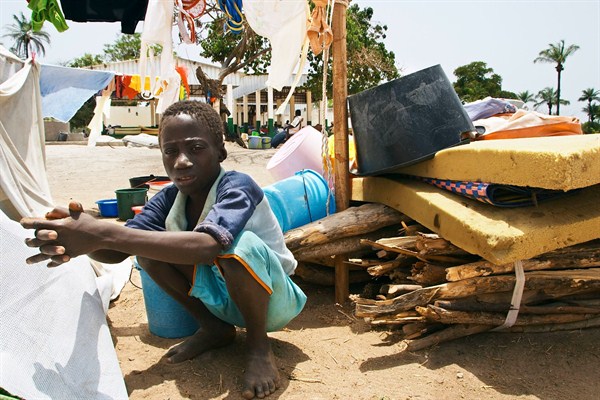Early this year, as the world waited to see whether Gambia’s then-president, Yahya Jammeh, would accept his election defeat and leave office, observers questioned who could help him muster the firepower to mount a last stand. Though this debate turned out to be largely speculative, one of the most commonly cited possible reserves of support was the Movement of Democratic Forces of Casamance (MFDC), an insurgent group that has been active in southern Senegal for more than three decades.
Allegations of ties between Jammeh and the rebels go back to the early days of Jammeh’s rule, which began with a military coup in 1994. Jammeh was frequently accused of allowing the group to form rear bases on Gambian soil as well as enlisting the group’s members to fight on his behalf. There were even reports he recruited them into his presidential guard.
As it happened, Jammeh wilted in the face of a muscular West African military deployment, leaving the country and paving the way for current President Adama Barrow to take office. Citing a security source within Gambia’s presidency, Buzzfeed reported at the time that Jammeh was unable to convince the MFDC to come to his aid.

